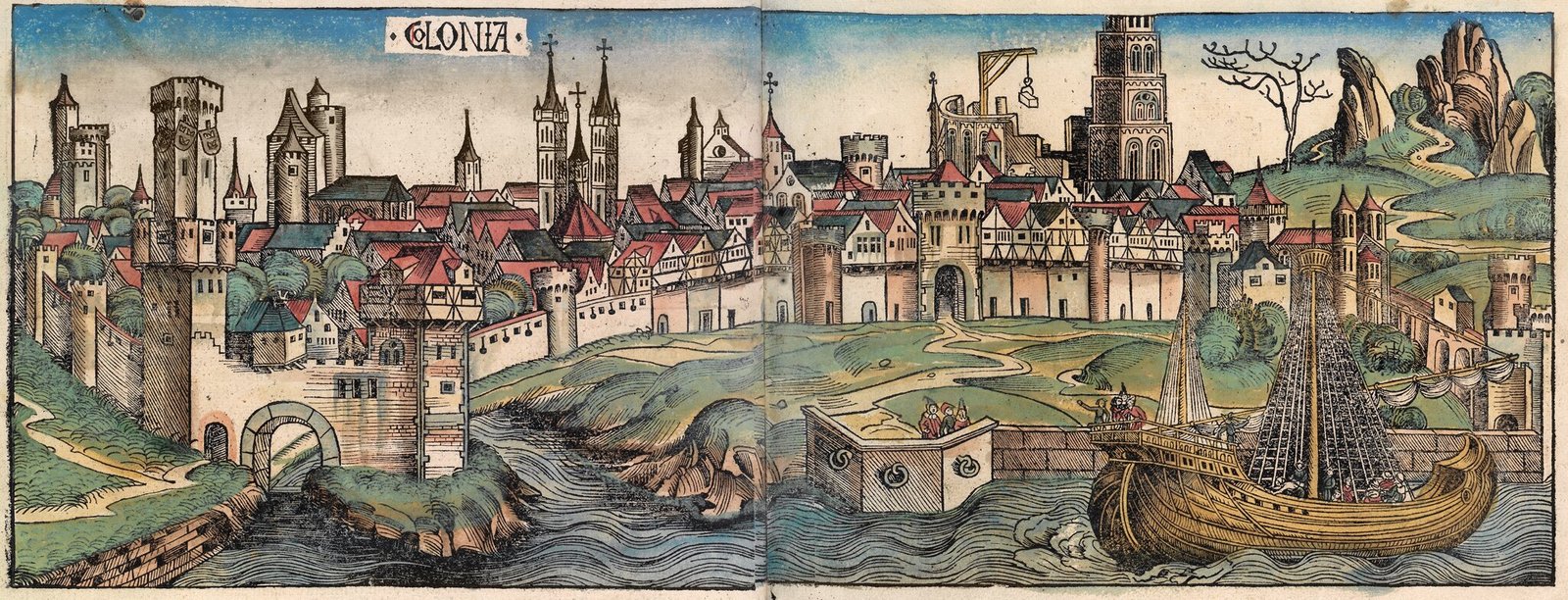
Complexity Postdoctoral Fellow Kerice Doten-Snitker studies how government-sanctioned violence in medieval Germany diffused from one community to another. More specifically, she wants to know what sometimes prevented the spread of targeted ethnic or racial policies.
“Although there is a tendency to see diffusion as ubiquitous, violence may be less contagious than we assume,” she writes in a paper published on August 20 in Comparative Political Studies. However, “we still lack theories to explain when the spread of exclusionary extremism is sluggish or interrupted, and when it flows unabated.”
To begin to address this, Doten-Snitker examines the case of Jewish exclusionary policies in medieval Germany. During this period, antisemitism was on the rise across Europe, and between the 11th and 14th centuries, Europe saw an uptick in expulsions, which forced Jews out of cities, small regions, and entire countries.
Most well known, perhaps, are the countrywide expulsions in France (beginning in 1182) and England (in 1290). The sprawling region of medieval Germany, or the western Holy Roman Empire, which abutted France and shared widespread antisemitism, had a relatively limited spread of exclusionary policies.
Drawing on a robust database, Doten-Snitker investigates the diffusion of policies that expelled Jews from 1385 through 1520 CE among 578 polities—local governments joined together in the Holy Roman Empire, similar to federated states we recognize today.
Instead of territory-wide expulsions, Medieval Germany had spots of periodic expulsions from particular cities. Perhaps surprisingly, the German cities that expelled Jews weren’t necessarily neighbors, and cities that were close in proximity didn’t necessarily issue expulsions at similar times.
“Diffusion research often looks to proximity as the chief factor that promotes contagion,” Doten-Snitker states in the paper, which began as a chapter in her Ph.D. dissertation. “However, … this study demonstrates that proximity can hamper diffusion.”
Many did, however, share the unusual characteristic of being “free” cities—cities beholden only to the Holy Roman Emperor and no other king or ruler.
Across the Holy Roman Empire, Jews were under the legal jurisdiction of the Empire only—any local polity had limited recourse to govern them. “Free” cities began to consider this a liability: perhaps Jews would be loyal to the Emperor rather than the city, they worried. And when the Emperor decided to levy taxes on his Jewish subjects, it took money out of the local economy and put it in imperial hands. “Free” cities began to practice political independence by expelling Jews—sometimes to just beyond the city walls.
“A lot of other, smaller, places—places that aren’t politically independent—are having hardly any expulsions at all,” says Doten-Snitker.
In untangling why, Doten-Snitker’s paper offers several independent conclusions. First, Christian elites began to change their views on governance, their responsibilities to their communities, and how Jews fit—or didn’t—in that vision. Second, political and economic relationships worked through spatial proximity to limit which polities took the step of expulsion.
“It’s not a straightforward story,” says Doten-Snitker. “That’s part of what makes my research a good fit at SFI—it’s complex. There’s not an obvious rule to what’s happening.”
Beyond being an interesting time period in a place with excellent available data, Doten-Snitker thinks that lessons from Medieval Germany can provide real insights for current-day problems.
“We are rightly worried about the spread of intolerance and violence,” she says. “What this paper shows is that, rather than being worried just about the spread of violence, we should also be thinking about what it is about social relationships that can make intolerance or violence or exclusion spread—or not.”
More information:
Kerice Doten-Snitker, The Diffusion of Exclusion: Medieval Expulsions of Jews, Comparative Political Studies (2024). DOI: 10.1177/00104140241269956
Provided by
Santa Fe Institute
Citation:
Researcher studies how violent policies spread among governments (2024, August 29)
retrieved 29 August 2024
from https://phys.org/news/2024-08-violent-policies.html
This document is subject to copyright. Apart from any fair dealing for the purpose of private study or research, no
part may be reproduced without the written permission. The content is provided for information purposes only.
